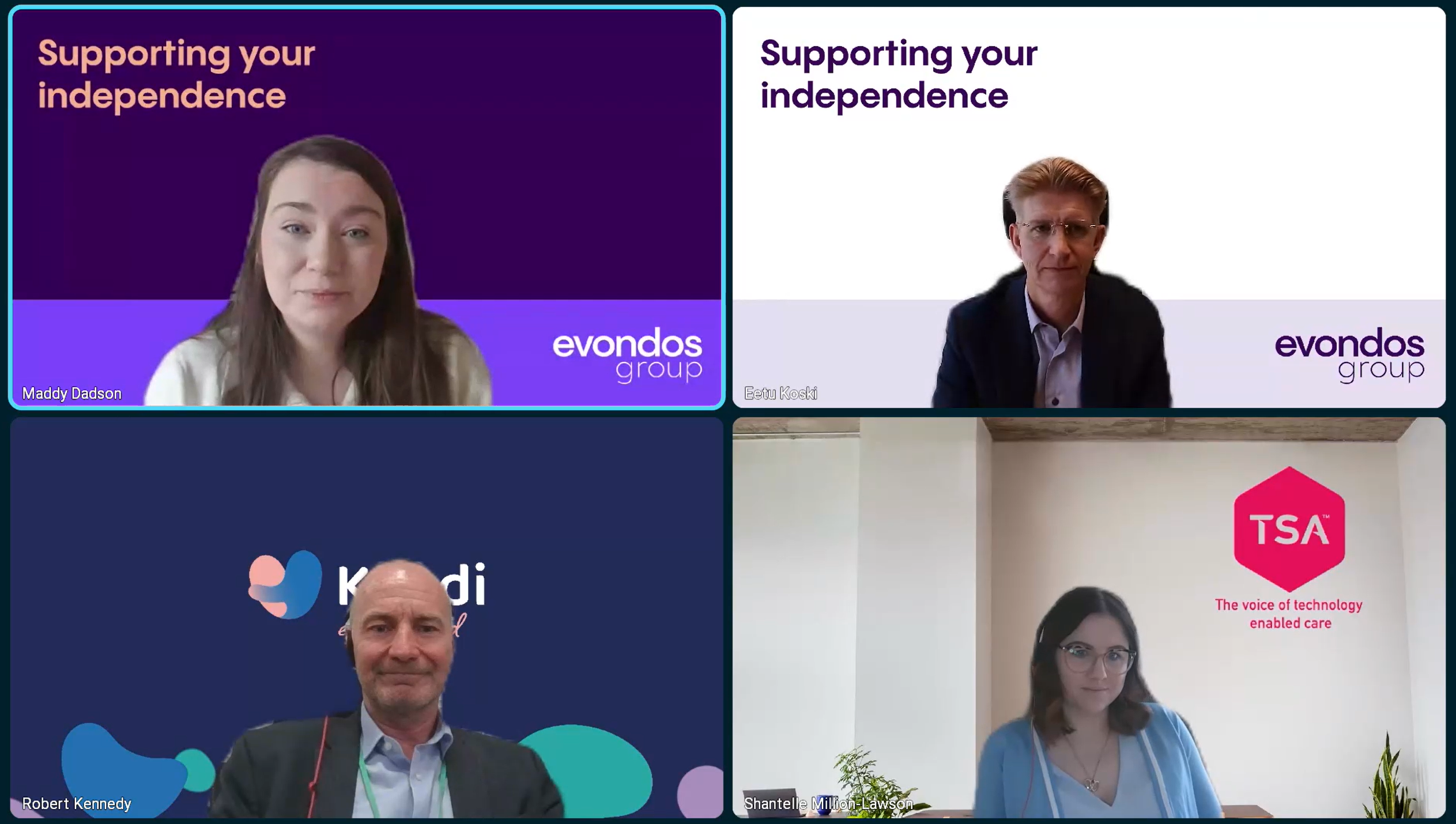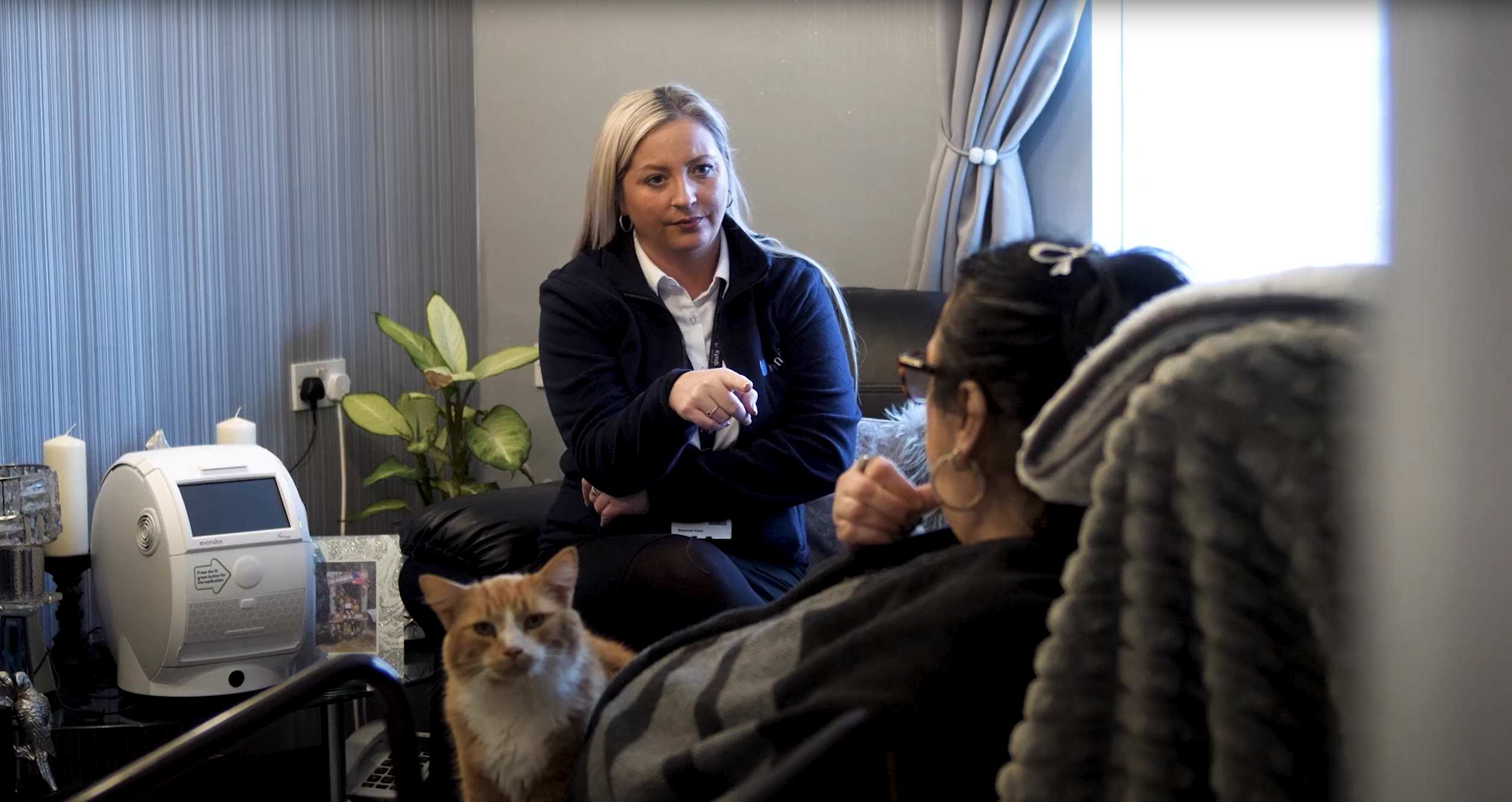Tackling Medication Adherence with Technology
By Evondos on 10 Jul 2025

Evondos broadcasted a live webinar in April 2025 that featured four distinguished experts in the field. We had the pleasure of welcoming Shantelle Million-Lawson in the role of Chief Operating Officer at the Technology Enabled Care Services Association (TSA) and Robert Kennedy, Head of Business Development, from our partner organisation Kyndi (in Medway, Kent, UK) to the event. Additionally we had our CEO, Eetu Koski join in, as well as our UK-based Customer Success and Project Manager Maddy Dadson.
During the webinar, these experts delved into the growing challenge of poor medication adherence in home care and healthcare. With insights grounded in real-world practice, the speakers discussed how technology is transforming medication dispensing and enhancing patient safety across the board. This blog text summarizes and highlights key quotes from the speakers. Curious to learn more? Let’s dive in!
A Global Challenge: Aging Populations and Healthcare Pressures
The aging population is a global challenge that’s putting unprecedented pressure on healthcare systems. Longer lifespans and a growing prevalence of chronic conditions are stretching resources thin. To help bridge this growing gap, technological solutions like medication dispensing robots are becoming vital components of modern care models.
Maddy Dadson, describes the situation in the UK as follows:
“By 2040, it's estimated that around 9.1 million people in the UK will be living with long-term chronic conditions. This will place significant pressure on home care services and the broader social care system.”
The Cost of Poor Medication Adherence
Medication adherence — or the lack of it — is one of the drivers behind rising healthcare costs. Robert Kennedy explains that expenses often arise when people take too little, too much, or none of their prescribed medication.
He emphasizes that a structured medication program can benefit everyone, from patients to care providers. Especially in care homes, where limited resources and cost-saving measures are the norm, ensuring consistent and safe patient care must remain the priority.
Robert illustrates this with a powerful story:
"We had a client whose life was completely transformed by Evondos. He used to have a home care nurse visit four times a day, but thanks to Evondos, he no longer has to plan his schedule around those visits. Evondos supports independent living, enabling patients to manage their own medication confidently and safely."
Medication Management: A Shared Responsibility
Even for trained healthcare professionals, administering medication can be a source of stress. Questions like “Am I giving the medication at the right time and in the right amount?” are always top of mind. The responsibility is significant, and the pressure is real.
But it’s not only professionals who feel the pressure. Many family members without any healthcare training find themselves managing complex medication routines for their loved ones.
Robert shares another moving example:
"One client's daughter spent every Saturday of her free time distributing medications and had no time to socialise with her loved ones. Technology can give family members the time to interact and focus on their loved ones, instead of spending that time filling pillboxes.”
And the same story repeats itself among professional caregivers. With fewer resources and tight schedules, many don’t have the time to engage meaningfully with patients. Instead, their time is spent managing medications, which technology can now help automate. Impressive, isn’t it?
Technology is the Tool – People Are the Key
Shantelle Million-Lawson highlights an important point: while technology is rapidly gaining ground in healthcare, its successful implementation often demands a cultural shift.
That cultural transformation starts with people – engaging staff and stakeholders, and creating a shared vision.
Eetu Koski echoes this sentiment:
"It's all about people in the end. Tech can help you achieve certain outcomes, but ultimately, it's the people who make the difference – the team members who need to be aligned and truly onboard with the process to see the real benefits. It often raises concerns among nurses: Will I lose my job? How will this impact me? But if you can reduce the amount of routine work so that nurses can be more present with their patients, that’s the real end game - every nurse just wants to help people.”
Laying the Groundwork for Success
As healthcare providers consider adopting new technologies, it’s essential to proceed strategically. Shantelle advises beginning with a risk assessment to identify the potential challenges for both the organization and its people.
"Be clear about the benefits you’re looking to achieve with the technology – this will help guide you toward the right solution. Ask yourself: Is the technology being piloted in an environment with relatively few challenges around medication adherence, or in one where it could have the greatest impact? Does the provider offer support staff to assist with implementation and help navigate the change process? What capabilities do we already have internally, and where might we need external support to successfully deliver the project?"
This level of foresight can make the difference between a smooth integration and a difficult transition. When technology is implemented with purpose and planning, the results can be transformative – and that’s the change we’re striving to create.
Beyond Automation: Creating Time for What Matters Most
Medication adherence might seem like a simple concept, but its impact on healthcare systems, caregivers, and patients is profound. As the pressure on healthcare continues to mount globally, technology offers a way to build a more sustainable, patient-centred future.
Solutions like Evondos don't just automate routines; they create time for professionals to engage, for families to connect, and for patients to live more independently.
In a world where every minute of care counts, that time might be the most valuable medicine of all.
Want to watch the whole webinar?
You May Also Like
These Related Stories
/.Brand%20photos/Nurse%20Anna%20Telecare.jpg)
Cybersecurity in HealthTech: Evondos Group's Commitment to Excellence

The Role of Medication Management in Enhancing Independence and Reducing Costs
/layout/Mallikuva-hero-1.jpg)